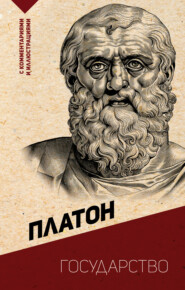По всем вопросам обращайтесь на: info@litportal.ru
(©) 2003-2025.
✖
The Republic
Настройки чтения
Размер шрифта
Высота строк
Поля
If he is to rule, I suppose that he cannot help himself.
What a blessed alternative, I said: – to be compelled to dwell only with the many bad, and to be by them hated, or not to live at all!
Yes, that is the alternative.
And the more detestable his actions are to the citizens the more satellites and the greater devotion in them will he require?
Certainly.
And who are the devoted band, and where will he procure them?
They will flock to him, he said, of their own accord, if he pays them.
By the dog! I said, here are more drones, of every sort and from every land.
Yes, he said, there are.
But will he not desire to get them on the spot?
How do you mean?
He will rob the citizens of their slaves; he will then set them free and enrol them in his body-guard.
To be sure, he said; and he will be able to trust them best of all.
What a blessed creature, I said, must this tyrant be; he has put to death the others and has these for his trusted friends.
Yes, he said; they are quite of his sort.
Yes, I said, and these are the new citizens whom he has called into existence, who admire him and are his companions, while the good hate and avoid him.
Of course.
Verily, then, tragedy is a wise thing and Euripides a great tragedian.
Why so?
Why, because he is the author of the pregnant saying,
'Tyrants are wise by living with the wise;'
and he clearly meant to say that they are the wise whom the tyrant makes his companions.
Yes, he said, and he also praises tyranny as godlike; and many other things of the same kind are said by him and by the other poets.
And therefore, I said, the tragic poets being wise men will forgive us and any others who live after our manner if we do not receive them into our State, because they are the eulogists of tyranny.
Yes, he said, those who have the wit will doubtless forgive us.
But they will continue to go to other cities and attract mobs, and hire voices fair and loud and persuasive, and draw the cities over to tyrannies and democracies.
Very true.
Moreover, they are paid for this and receive honour – the greatest honour, as might be expected, from tyrants, and the next greatest from democracies; but the higher they ascend our constitution hill, the more their reputation fails, and seems unable from shortness of breath to proceed further.
True.
But we are wandering from the subject: Let us therefore return and enquire how the tyrant will maintain that fair and numerous and various and ever-changing army of his.
If, he said, there are sacred treasures in the city, he will confiscate and spend them; and in so far as the fortunes of attainted persons may suffice, he will be able to diminish the taxes which he would otherwise have to impose upon the people.
And when these fail?
Why, clearly, he said, then he and his boon companions, whether male or female, will be maintained out of his father's estate.
You mean to say that the people, from whom he has derived his being, will maintain him and his companions?
Yes, he said; they cannot help themselves.
But what if the people fly into a passion, and aver that a grown-up son ought not to be supported by his father, but that the father should be supported by the son? The father did not bring him into being, or settle him in life, in order that when his son became a man he should himself be the servant of his own servants and should support him and his rabble of slaves and companions; but that his son should protect him, and that by his help he might be emancipated from the government of the rich and aristocratic, as they are termed. And so he bids him and his companions depart, just as any other father might drive out of the house a riotous son and his undesirable associates.
By heaven, he said, then the parent will discover what a monster he has been fostering in his bosom; and, when he wants to drive him out, he will find that he is weak and his son strong.
Why, you do not mean to say that the tyrant will use violence? What! beat his father if he opposes him?
Yes, he will, having first disarmed him.
Then he is a parricide, and a cruel guardian of an aged parent; and this is real tyranny, about which there can be no longer a mistake: as the saying is, the people who would escape the smoke which is the slavery of freemen, has fallen into the fire which is the tyranny of slaves. Thus liberty, getting out of all order and reason, passes into the harshest and bitterest form of slavery.
True, he said.
Very well; and may we not rightly say that we have sufficiently discussed the nature of tyranny, and the manner of the transition from democracy to tyranny?
Yes, quite enough, he said.
BOOK IX
Last of all comes the tyrannical man; about whom we have once more to ask, how is he formed out of the democratical? and how does he live, in happiness or in misery?
Yes, he said, he is the only one remaining.
There is, however, I said, a previous question which remains unanswered.
What question?
I do not think that we have adequately determined the nature and number of the appetites, and until this is accomplished the enquiry will always be confused.
Well, he said, it is not too late to supply the omission.

















